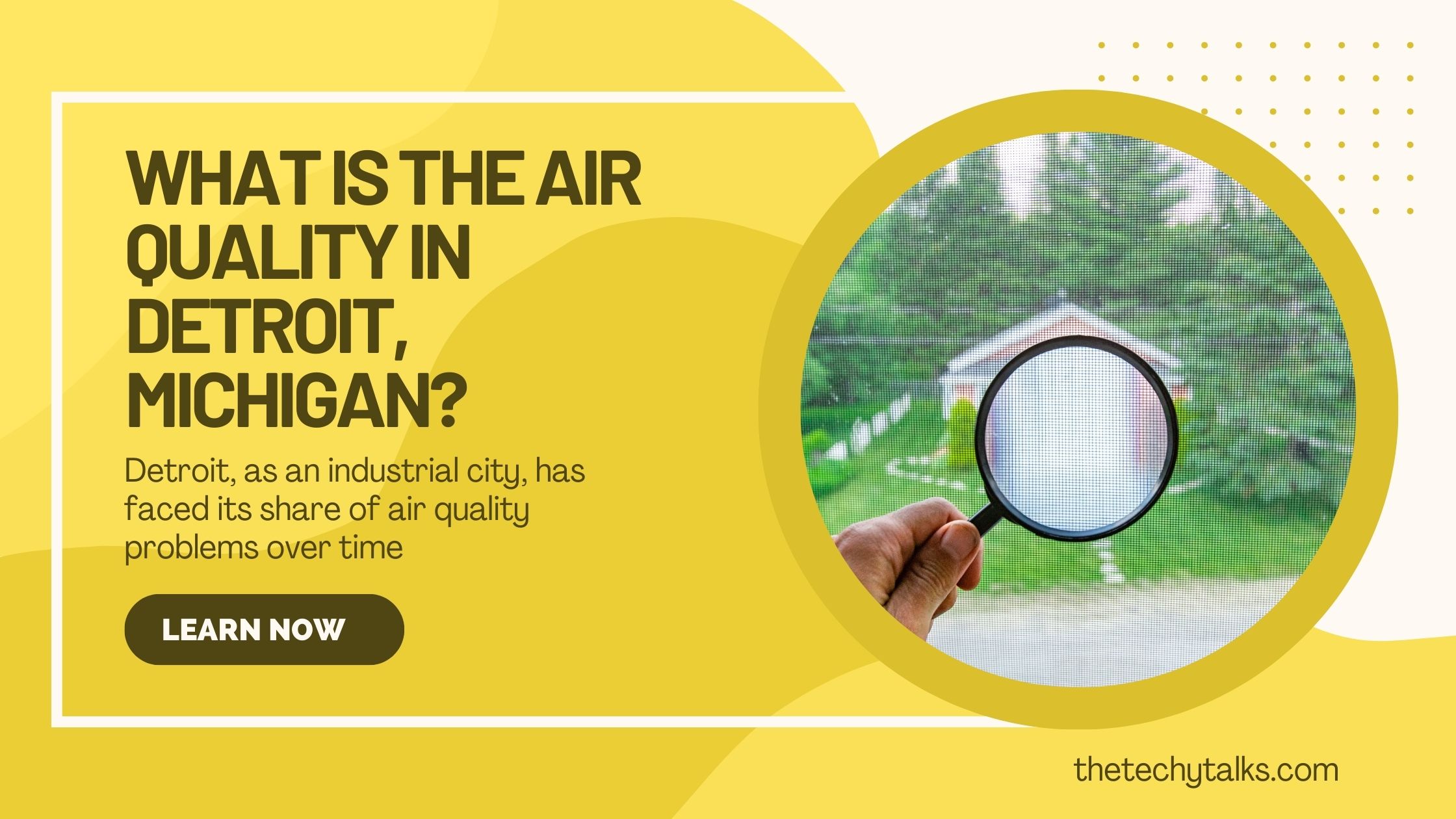
What is the Air Quality in Detroit, Michigan?

In latest years, issues about environmental health have grown, and one of the crucial aspects is air great. In this newsletter, we will delve into the air nice in Detroit, Michigan, and discover its implications at the metropolis's residents and the environment. But first, permit's understand what air fine is and why it topics.
Understanding Air Quality
Air quality refers to the condition of the air in any given location with regards to pollutant presence and their potential effects on human health and the environment. Breathing clean air is integral to overall wellbeing; poor quality air can contribute to respiratory illness, allergies or more serious conditions - even life-threatening ones such as lung cancer.
Monitoring Air Quality
Proper air quality monitoring is vital in order to protect public health and the environment. By tracking air pollutants' levels, authorities can make informed decisions regarding regulatory measures and policies which ensure citizens do not come into contact with harmful pollutants that threaten to compromise a more healthy and sustainable living environment.
Factors Affecting Air Quality
Many factors play a part in influencing air quality. This includes emissions from vehicles, industrial processes and natural sources like wildfires. Weather conditions like temperature and wind patterns also have a huge effect on determining its quality.
Also Read: Water Park In Carmel, Indiana
Air Quality in Detroit, Michigan
Detroit, as an industrial city, has faced its share of air quality problems over time. Initially, industrial emissions created significant air pollution issues; however, in more recent decades thanks to stricter regulations and cleaner technologies there have been noticeable improvements.
Present Air Quality Status Today, Detroit's air quality has seen significant improvement but challenges still exist. Specifically due to industrial and transportation activities. To assess this current state, let's look at some common air pollutants: 7.5
Detroit, like many urban areas, suffers from air quality issues resulting from pollution sources like Particulate Matter (PM2.5 and PM10): These tiny particles can penetrate deep into respiratory systems, potentially posing serious health threats to residents.
Ozone (O3): Ground-level ozone pollution can significantly adversely impact lung health. Nitrogen Dioxide (NO2): Composed mostly of vehicle emissions, it may irritate lung tissue and lead to respiratory conditions.
Sulfur Dioxide (SO2): Produced through industrial processes, sulfur dioxide can aggravate respiratory conditions. Health Implications.
Environmental Pollutants Can Affect Respiratory Health
Long-term exposure to air pollution may increase risk for asthma, bronchitis and decreased lung function - particularly among vulnerable populations such as children and the elderly. Children and elderly are especially at risk.
Children, the elderly and individuals with preexisting health conditions are particularly susceptible to the negative impacts of poor air quality. Therefore, proper air quality management must be put in place in order to safeguard vulnerable groups like these.
Monitoring and Measuring
The government, along with various agencies, measures air quality in Detroit by means of an air quality monitoring network of stations. This enables identification of pollution sources as well as taking preventative steps against pollution sources.
Also Read: Problems Faced by Children in Slums Areas
Government Initiatives
To improve air quality, local governments have taken measures and introduced regulations and initiatives designed to lower emissions and support cleaner technologies. Their efforts aim to strike a balance between industrial development and environmental protection.
Detroit's Initiatives to Improve Air Quality Many organizations and environmental groups in Detroit are taking proactive steps to improve the city's air quality by engaging in tree-planting initiatives, advocating for public transit systems, and raising awareness about carbon reduction practices.
Individuals play an essential part in improving air quality. Acts such as cutting energy consumption, using public transit more frequently and supporting eco-friendly practices all contribute to creating a cleaner environment.
Conclusion
Detroit, Michigan's air quality has made great strides since its industrial peak, yet challenges still exist due to industrial and transportation activities in the city. Both authorities and individuals should work collaboratively towards further improving air quality for public health purposes and environmental preservation.




















